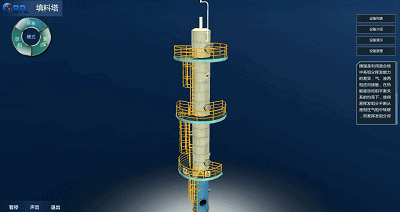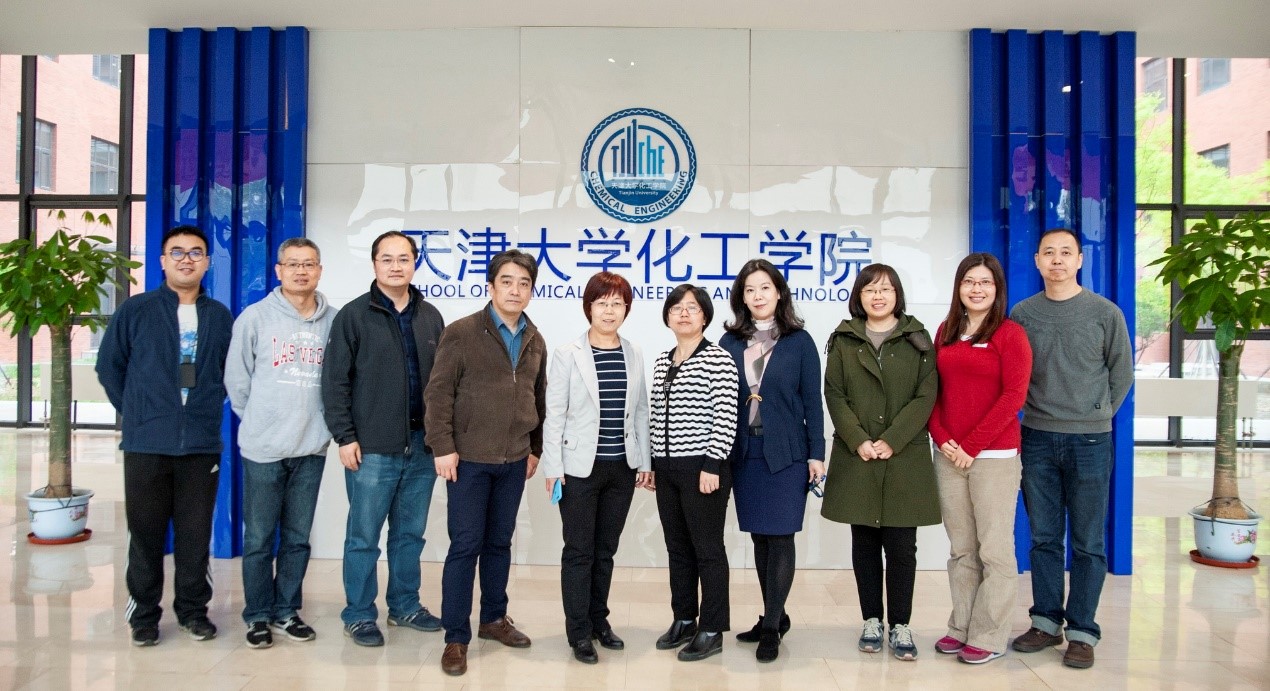
Recently, the Ministry of Education announced a list of national virtual simulation experiment-teaching projects that were the first to have gained national approval. TJU’s project Distillation Comprehensive Development 3D Virtual Simulation Experiment, was on the list.
The project, supported by the National Experimental Teaching Demonstration Center for Colleges and Universities in Chemistry and Chemical Engineering and the Virtual Simulation Experimental Teaching Center, focuses on a “distillation experiment”, a required course in Chemistry, Chemical Engineering, Materials, Pharmacy, Food, etc. It is a comprehensive project involving the “Three Transference Processes” in the chemical industry: the momentum transfer, the heat transfer and the mass transfer processes. While constructing this project, TJU ensured that fostering students’ ability was the top priority, its 3D distillation laboratory endeavors to create an environment where students can have immersive experiences by observing realistic fluid flow phenomenon, watching the vivid equipment dismantling animation and having zero-distance exposure to chemicals and chemical equipment. The adjustable structural parameters and the variable experimental systems also help students better understand the theories, the operation and designing of distillation processes. In the “Three Levels and Seven Modules” experiment teaching, a progressive approach is adopted, students are guided from a single device to an integrated process, from “simple” to “complex”, from “cognition” to “experience”, from “simulation operation” to “project development” and “comprehensive design”. Such “level-based” learning models can better meet the needs of personnel training of different levels and types. By combining online and offline experiment instruction and adopting an open management and operation mechanism that is safe and reliable, the project is sure to generate more benefits and set a good example in experiment instruction.
Xia Shuqian, the project leader, has long been teaching and working in the research field, devoting herself to the international certification of chemical engineering, domestic certification, international exchange and the establishment of the undergraduate experiment-teaching center and the demonstration center. Most of the members involved in this project are teachers from various programs including:The National Exquisite Class "Chemical Engineering Principles and Experiments", the National Resource-Sharing Class and the Faculty Team of Tianjin. By combining and enhancing classroom theory-teaching, practice-teaching and virtual simulation, the project has demonstrated TJU’s strength in information-based teaching. As a staunch supporter of a shared experiment teaching resource repository, TJU will play a leading role in this endeavor.

In answer to the “Education Informatization 10-year Development Plan (2011-2020)” and the “2017 Education Informatization Work Plan”, the Ministry of Education carried out the work to set up demonstrative virtual simulation experiment-teaching projects in undergraduate colleges and universities between 2017 to 2020. The work aims to further promote the integration of information technology and experiment-teaching in higher education, to further develop high quality experiment-teaching resources for utilization and to level up the education standard.
TJU, following the “student-centered, output-orientated and ever-improving” principles, is working to launch varied demonstrative projects with special features and to advance their application. Propelled by its high-caliber laboratory teaching, the “TJU 2030 Action Plan to Build First-Class Undergraduate Education” is expected to be executed smoothly.
By: Liao Shouqin
Editors: Sun Xiaofang and Ross Colquhoun






